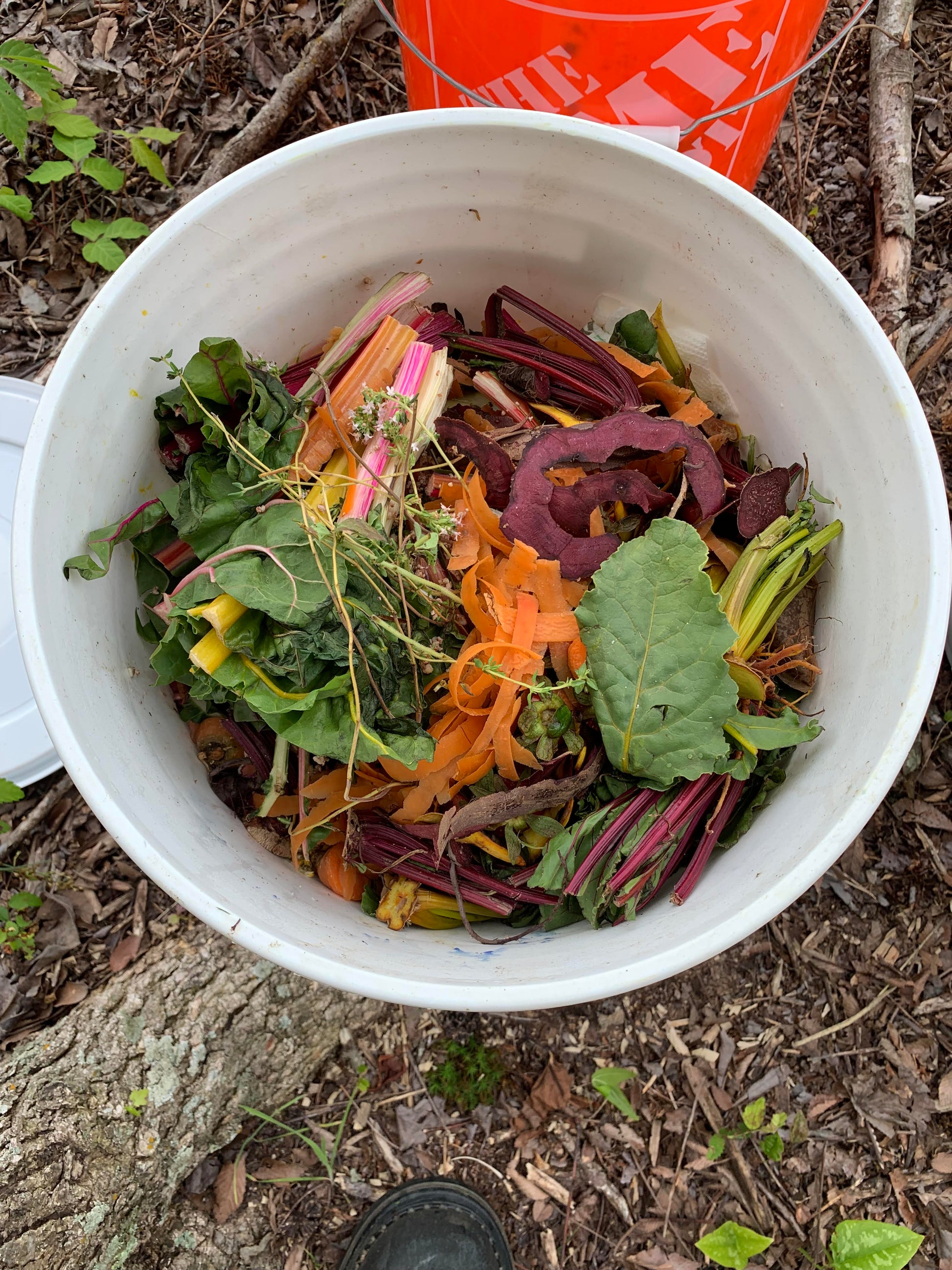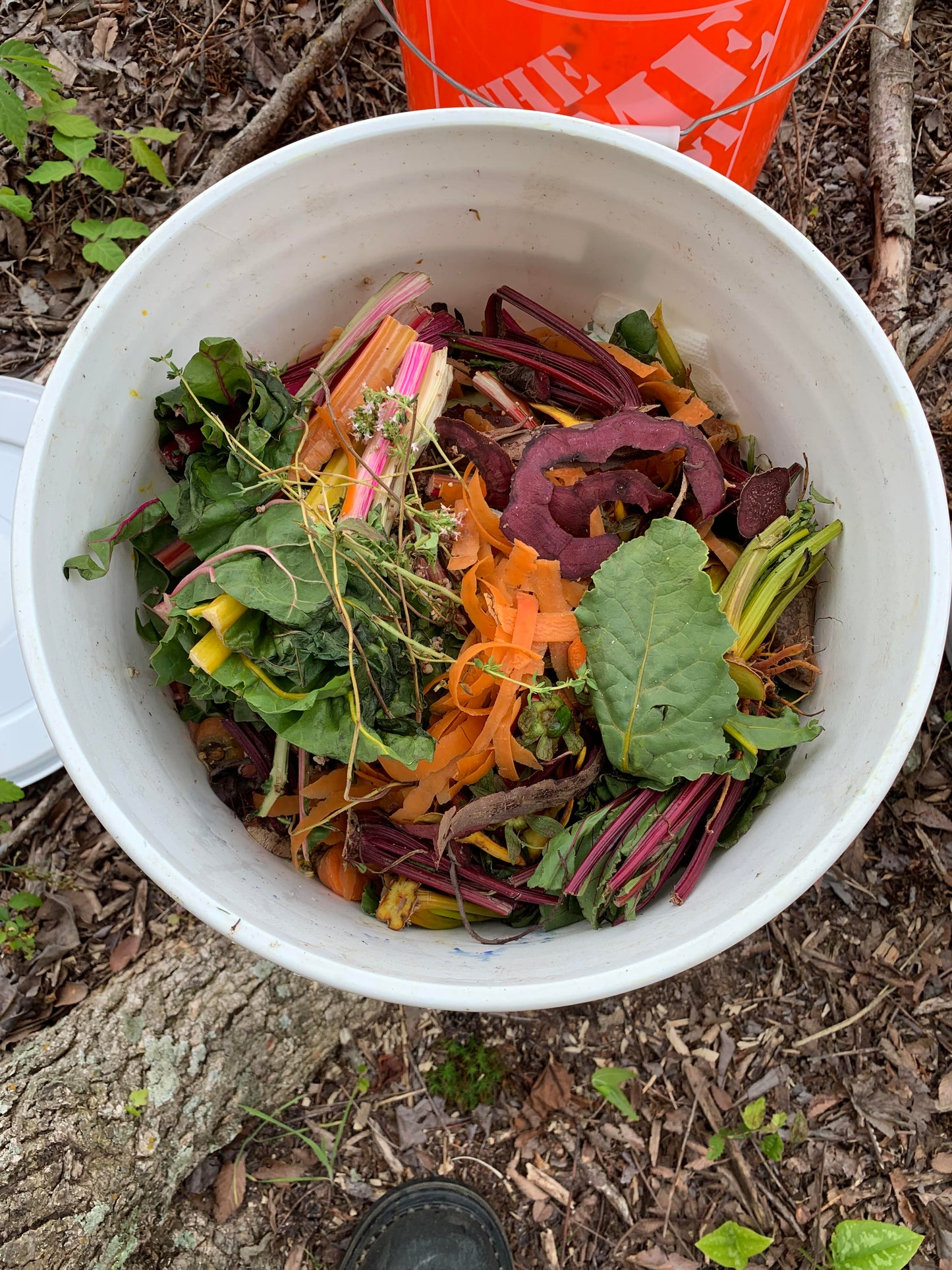Compost

Living Soil Tree Farm
Curbside Food Waste Pickup

















-
We are waiting to get 25 interested house holds before we begin taking payment and picking up waste. If you are interested please send us an email! :)
-
Tips to reduce smells
1. Use a transfer container!
- We like to use a large bowl but just about any container will do. A container with a lid can be helpful
- Use this container to hold your food waste throughout the day
- Empty the transfer container into your main bucket once per day
- It is a good idea to rinse out this container regularly
- a handful of mulch at the bottom of your transfer container helps reduce smells and prevent waste from sticking to the bottom of the container
2. Keep your main bucket away from living areas. The garage or laundry room is a great place.
-
Backyard composting
- Using our curbside service is by no means the only way to compost your food waste.
- Making a backyard pile or indoor worm bin is easy and rewarding!
- At home composting systems can be built entirely with material from the waste stream. Think old pallets and plastic tubs etc.
- Composting is a profound experience to behold. It is simultaneously at the beginning and end of life.
- Follow us on social media to learn more about how to setup compost piles at home!

Impacts on local farms
- Compost can reduce or eliminate the need for fossil fuel based fertilizers and pesticides
- Compost increases crop yields and plant health
- When applied to soil compost drastically increases water retention properties while also improving drainage in soils
- This all leads to healthier plants, more food, and lower input costs for farmers.

Ecological Impacts of Compost
- These benefits are not limited to farms. Compost can be applied to boost ecosystem health in suburban, urban, and native landscapes as well!
- When added to soil compost can filter out 60-95% of storm water pollutants
- Compost can dramatically increase microbial activity in soils
- Compost application increases plants resistance to droughts and floods
- Compost improves biological, chemical, and physical properties of soil

What we do with our waste matters
- Composting creates more jobs than landfilling and boosts local economiesFood waste releases methane when it breaks down in a landfill.
- Methane is more than 25 x as potent as CO2 in the atmosphere
- In a healthy compost pile food waste does not emit methane
- Compost also helps to capture carbon in soil and plants!
- Composting your food waste is one of the easiest and most direct ways to have a positive impact on climate change
- More than 50% of household waste is compostable!